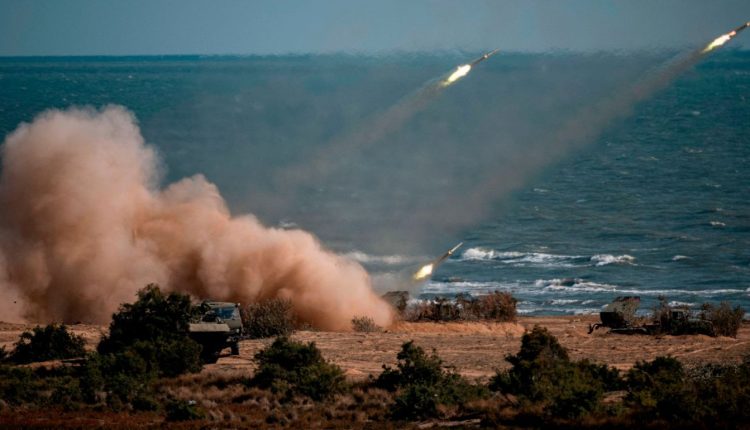The Russia-Ukraine war has had profound and complex impacts on the countries surrounding the Caspian Sea. This conflict has not only affected the political and economic status of the coastal nations but has also caused environmental problems that could significantly harm Iran.
Russian Military Activities in the Caspian Sea
Russia, a coastal state of the Caspian Sea, has a naval fleet stationed in this body of water. During the Ukraine conflict, Russia has utilized this fleet to launch missiles at targets in Ukraine. These military activities have not only had military and political repercussions but have also raised serious environmental concerns.
Pollution and Mass Deaths of Marine Life
One of the major consequences of the Russia-Ukraine war for the Caspian Sea is the pollution resulting from military activities. Recent regional reports indicate that mass die-offs of fish and other marine life along the coasts of Azerbaijan and Kazakhstan are directly linked to Russian military activities.
Pollution from missile-related toxic substances and related incidents has severely impacted the Caspian Sea’s ecosystem, potentially leading to the extinction of various marine species in the future. This situation poses a significant threat to Iran’s marine resources, which are crucial for its seafood supply and economic revenue.
Decrease in Caspian Sea Water Levels
Another direct impact of the Russia-Ukraine war is the reduction in Caspian Sea water levels due to decreased flow from the Volga River. This issue is exacerbated by Russian actions, such as constructing dams and increasing water usage to compensate for agricultural shortages caused by Western sanctions.
This reduction in water levels has led to problems in maritime transport, port operations, and key trade routes such as the Trans-Caspian Corridor.
For Iran, which relies on this trade corridor to connect with Central Asian and European markets, these maritime transport issues could mean increased logistics costs, reduced export capabilities, and disruption of trade with neighboring countries.
Legal and Diplomatic Challenges
Russia’s military use of the Caspian Sea and the decrease in Volga River flow may violate international environmental protection agreements. The most significant of these agreements is the Tehran Convention (Framework Convention for the Protection of the Marine Environment of the Caspian Sea), which was signed by the Caspian Sea coastal states to protect the sea’s environment.
The Tehran Convention stipulates that all coastal countries are responsible for preventing marine pollution and protecting the biodiversity and environment of the Caspian Sea. However, Russia’s military activities and reduced Volga flow could lead to pollution and environmental degradation that contradict these commitments.
Recommendations
1.Enhanced Monitoring and Research: Iranian experts and officials should increase monitoring of the Caspian Sea’s environmental status and conduct further research on the impacts of military activities and decreasing water levels.
2.Strengthening Regional Cooperation: Closer cooperation with Caspian Sea coastal states to manage environmental and commercial crises and implement international agreements can help address these issues.
3.International Attention: Utilizing opportunities such as the COP29 conference to draw global attention to the Caspian Sea’s environmental problems and increase international support could aid in resolving these issues and securing financial and technical assistance.
Given the diplomatic complexities and sensitivities, Iran must pursue environmental diplomacy and regional cooperation to find joint solutions for protecting the Caspian Sea’s natural and economic resources. Only through coordinated and multilateral efforts can the harmful effects of the Ukraine war on the Caspian Sea’s environment and economy be mitigated and a more sustainable future for the region ensured.

